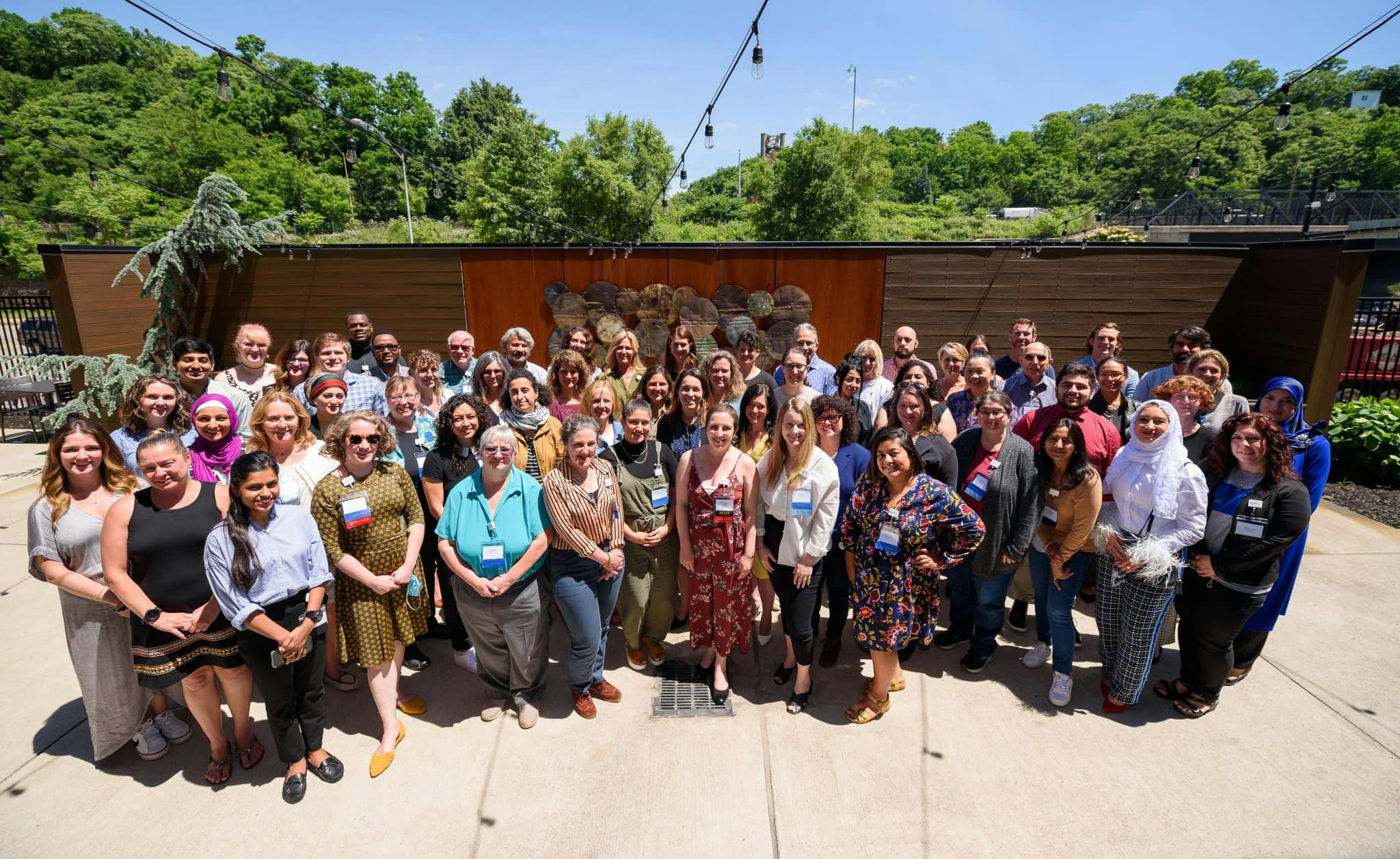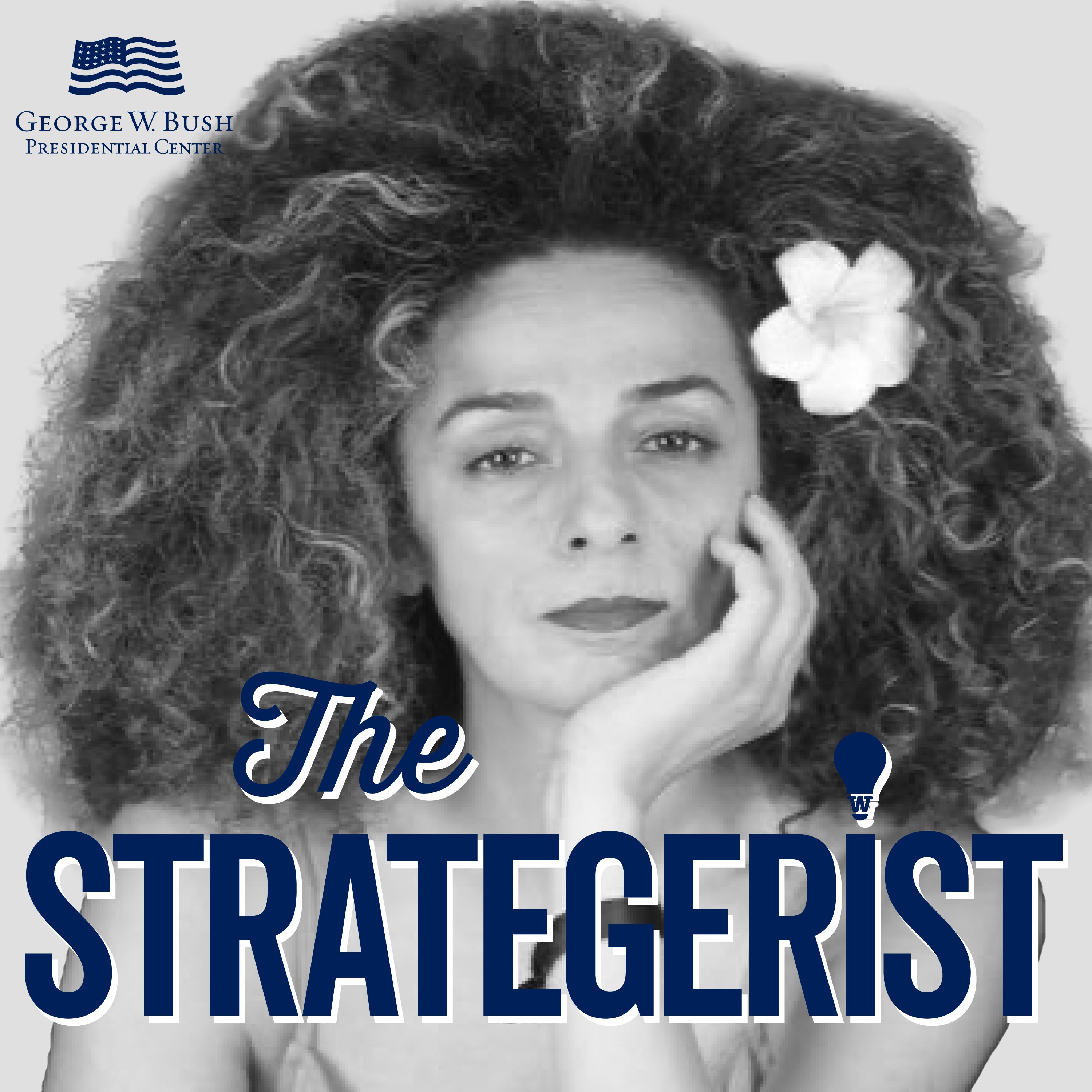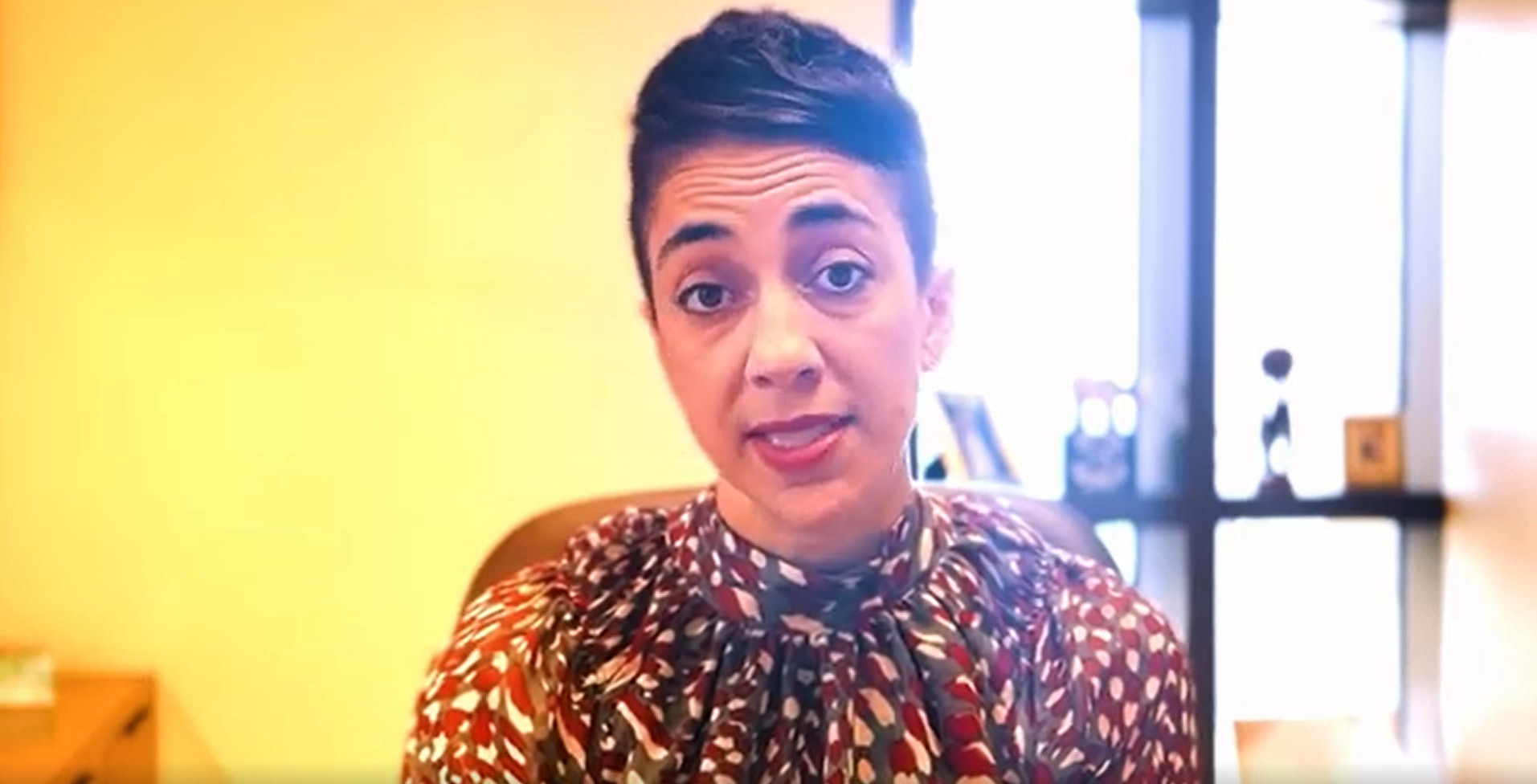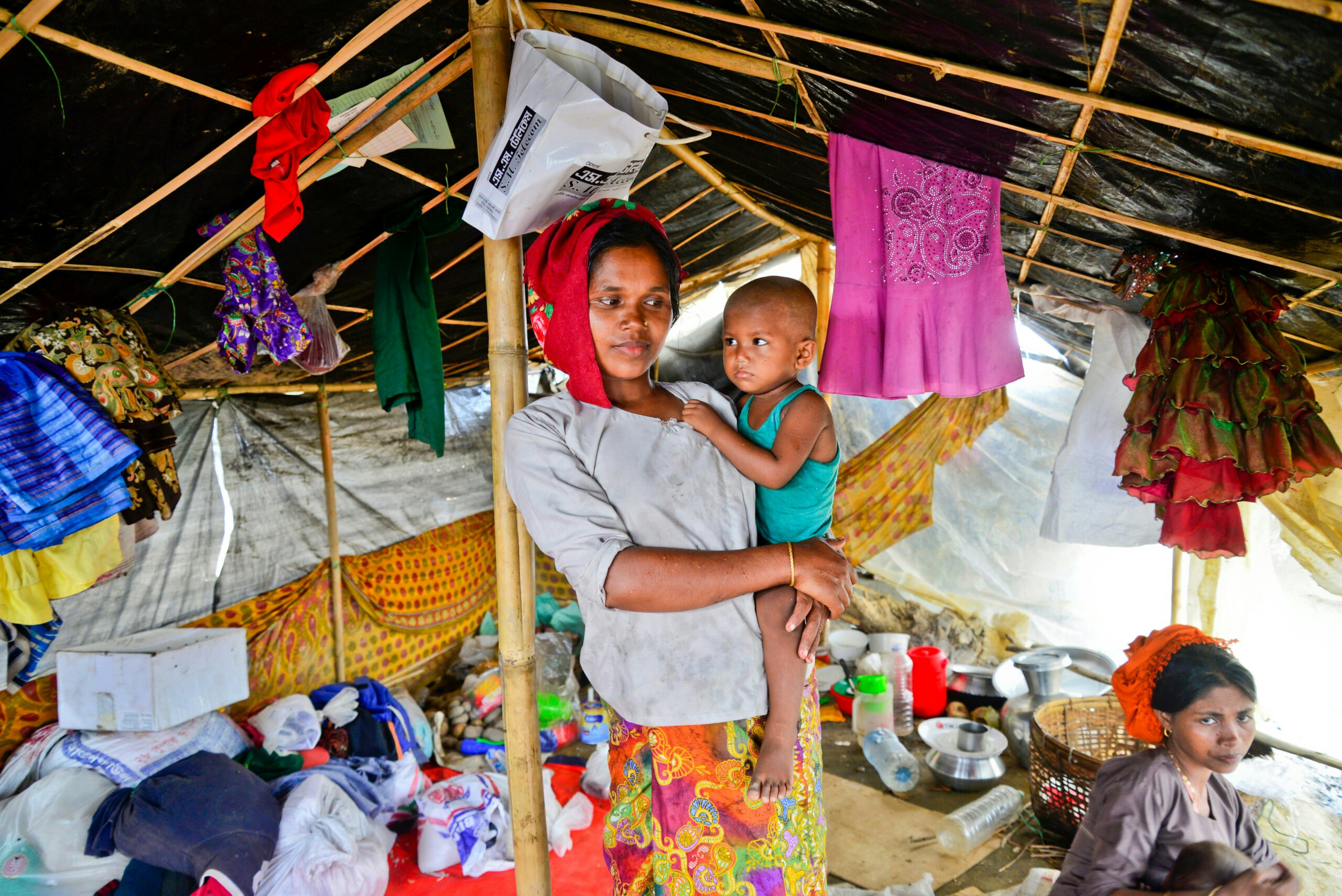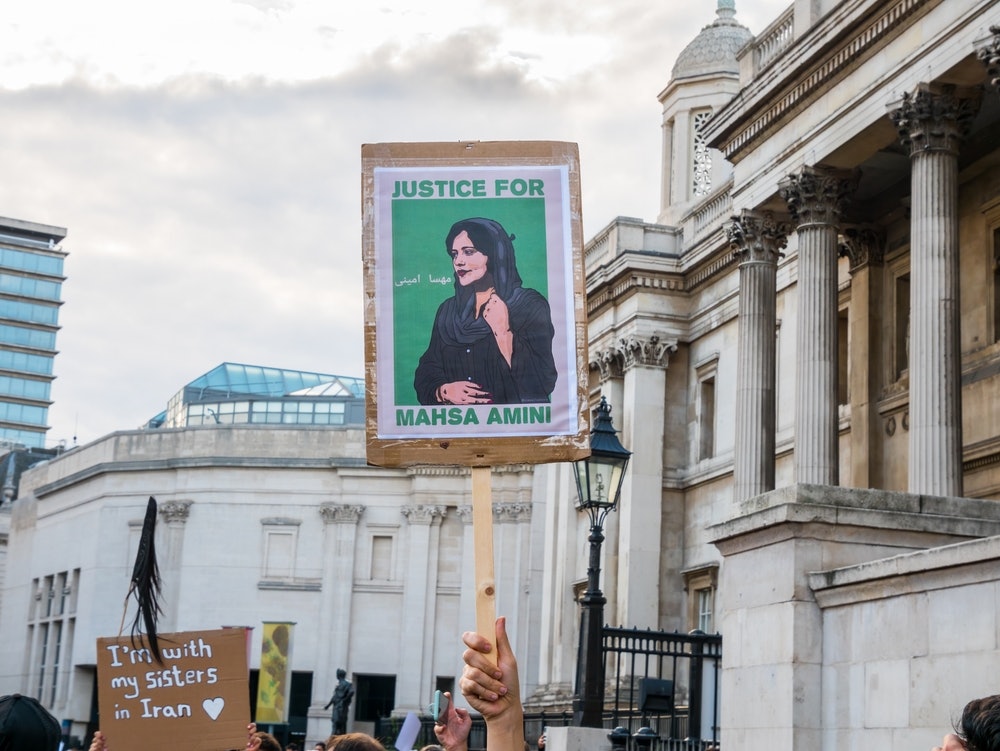About the Leading Change SeriesWomen in Afghanistan have experienced incredible progress over the last ten years, and the hard-won gains of the...
About the Leading Change Series
Women in Afghanistan have experienced incredible progress over the last ten years, and the hard-won gains of the last decade must not be reversed. Girls have returned to school to become educated, like their brothers, and women are serving as provincial governors and members of the National Assembly. Their stories inspire us, and remind us of what is at stake for Afghan women.
As part of the Women’s Initiative Afghan Women’s Project, we have launched a blog series that spotlights the success stories of courageous Afghan women and girls.
Rangina Hamidi
A dual citizen of the United States and Afghanistan, Rangina Hamidi servesboth countries with courage and creativity. In addition to her direct work in support of Kandahari women, Rangina serves the United States in cultural and language training of State Department employees, and volunteers as a point of contact and advocate for training programs and Afghan civil society organizations. She serves as an important bridge between two countries and cultures in a time of great uncertainty and change.
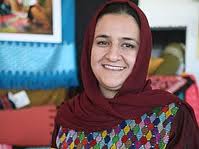 Rangina Hamidi was born in Afghanistan and escaped the country with her family during the Soviet occupation in 1981. Rangina and her family fled first to Pakistan but settled in the United States in 1988. Rangina grew up near Washington, D.C. and completed her bachelor’s degree in religious and gender studies at the University of Virginia. After September 11, 2001, Rangina was determined to return to her native country to participate in the reconstruction and development of Afghanistan. “There was only one thing on my mind, “ she says, “and that was to go back.”
Rangina Hamidi was born in Afghanistan and escaped the country with her family during the Soviet occupation in 1981. Rangina and her family fled first to Pakistan but settled in the United States in 1988. Rangina grew up near Washington, D.C. and completed her bachelor’s degree in religious and gender studies at the University of Virginia. After September 11, 2001, Rangina was determined to return to her native country to participate in the reconstruction and development of Afghanistan. “There was only one thing on my mind, “ she says, “and that was to go back.”
When Rangina returned to Afghanistan in 2003, she served as the manager of the Women’s Income Generation Project for Afghans for Civil Society, an organization dedicated to social development in Kandahar province of southern Afghanistan. Through Afghans for Civil Society, Rangina pioneered social programs and activities for women within Kandahar City and surrounding districts. Rangina says that her five years of work on women’s economic empowerment within Afghans for Civil Society awarded her valuable time to build relationships with Kandahari women and test income generation strategies. She participated in business education programs Project Artemis and BPeace, which she considers the “parents” of Kandahar Treasure, and transformed her ideas into a sustainable business enterprise.
Kandahar Treasure
Kandahar Treasure is Rangina’s response to the challenge of creating sustainable economic opportunity for women within a conservative cultural context. The employees of Kandahar Treasure design and create traditional Khamak textiles for sale in both domestic and international markets. Khamak, considered by experts to be one of the world’s finest embroidery techniques, is an art form unique to Kandahar. Inspired by Islamic geometric design and floral motifs, the embroidery decorates headscarves, men’s shirts and pants, table linens and elaborate wedding trousseaus.
 Historically in Kandahar, a girl’s skill in embroidery became a key determinant of her value and served as a criterion by which she was evaluated as a future bride. Because of its social importance, girls begin to learn khamak as young as 5-years-old and are considered masters by 12 or 13. Through Kandahar Treasure, these skills translate into economic opportunity for women who have not had access to formal education and are largely homebound due to restrictions on women’s movement.
Historically in Kandahar, a girl’s skill in embroidery became a key determinant of her value and served as a criterion by which she was evaluated as a future bride. Because of its social importance, girls begin to learn khamak as young as 5-years-old and are considered masters by 12 or 13. Through Kandahar Treasure, these skills translate into economic opportunity for women who have not had access to formal education and are largely homebound due to restrictions on women’s movement.
Kandahar Treasure seeks to provide an important first step in the attainment of women’s rights and freedom by giving economic opportunity to women who do not have access to public space. Kandahar Treasure employs 350 women in Kandahar City and six surrounding districts. Twenty master designers and tailors work in Kandahar Treasure’s offices, and the others fulfill orders for the company from their homes. In 2012, Kandahar Treasure sold $250,000 of “wearable art” – scarves, tunics and home décor. Rangina boasts, “In the big picture, $250,000 is a drop in the ocean; but in a place like Kandahar, in an organization run and operated solely by women, it is a significant amount of money. It is income earned by the women’s hands, needles and threads.”
Imagining and Creating the Future
Rangina celebrates the changes that she has observed in the women since Kandahar Treasure’s founding. “When I brought [the women] together, they were mute and quiet. Now, they have built an environment of power among themselves just by the fact that they know each other and feel that they are in a safe environment together.” When faced with the decision to lower overhead costs, Rangina made a strategic decision to keep Kandahar Treasure’s offices open for the benefit of the twenty full-time employees. “I know it costs more, but I want some of them to have the experience of going to work, to go and be in a place away from home, to be in a community of women, and to earn a living.”
Rangina recounts a story from her most recent visit to Kandahar. “I walked in to a special conversation among the women: they were imagining a ‘coup’ in Kandahar and they identified themselves [as leaders within a new government]. One was going to be governor, one the deputy, one the mayor, one the head of the department of women’s affairs, and the other the head of water and electricity. It was an ‘imaginative coup’ that happened, but it happened because women were gathered together in one space – a space that was safe and was theirs and where they were not told to be quiet or to not think or imagine.”
Rangina highlights these moments because they would have been impossible just a few years ago. “They are ordinary women who are sick and tired of the status quo. They want to bring change. I am encouraged and empowered by their imagination.” Rangina has intentionally structured Kandahar Treasure as a business that provides vital economic opportunity, but also as an incubator where long-term social change can take root.







